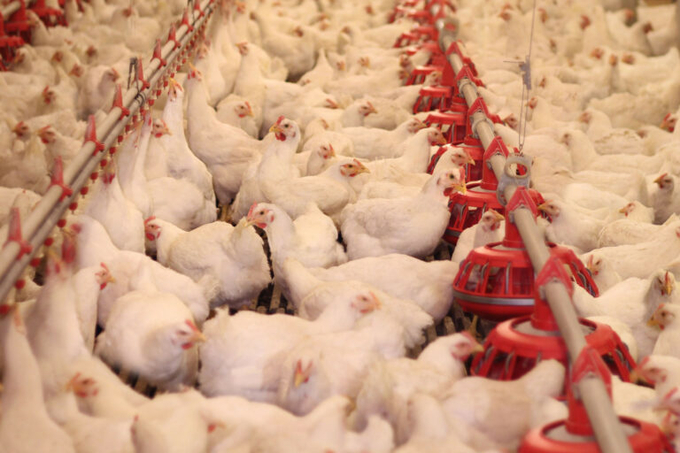June 19, 2025 | 04:33 GMT +7
June 19, 2025 | 04:33 GMT +7
Hotline: 0913.378.918
June 19, 2025 | 04:33 GMT +7
Hotline: 0913.378.918
Prime minister Donald Tusk is reportedly reluctant to meet the demands.

Poland’s largest poultry farm is Wróblewo, which can accommodate 2.5 million broilers. Photo: Canva
There are almost 1,300 industrial poultry farms operating in Poland, and 2 more farms are estimated to be built every month on average, according to the Stop Industrial Farms Coalition, an alliance of several ecological organisations. In 2023-2024, 32 new industrial farms were put into operation, while dozens are under currently construction, and 23 are up for a construction permit, the environmentalists said.
“The process [of poultry industry expansion] is gaining momentum. It has never been so bad before,” warned Bartosz Zając, a spokesman for the Stop Industrial Farms Coalition. “Mayors and commune heads are bombarded with applications for permits to build new hen houses.”
Citizens’ concerns
It is reported that residents of settlements located close to the industrial poultry farms repeatedly complain about stench, pollution and health hazards.
During the recent election campaign, Polish politicians of the prime minister Tusk’s political party promised to sort out the problem and introduce restrictions against poultry clusters – a format where several big poultry farms sit next to each other, sharing common infrastructure.
“The politicians forming the government today travelled around Poland just before the elections and promised to solve the problem of the farm clusters. Now they have power, but they are not keeping their promises,” explained Bartosz Zając, a spokesman for the Stop Industrial Farms Coalition.
A hen house of Europe
“Poland is becoming the hen house of Europe,” local online news outlet, Next Gazeta, reported, citing growing concerns of environmentalists and residents in several regions over ongoing poultry industry expansion.
The issue is considered particularly tense in Mazovia, especially in the Żuromin – Mława – Ciechanów triangle, one of the country’s largest broiler meat production centres. The largest farm, Wróblewo, can accommodate 2.5 million broilers, which makes 17 million birds per year. Local residents have a long story of urging the local authorities to cap the industry’s development, though farms are the key source of employment in this part of the country.
The ecologists admit that protests, however, rarely secure any meaningful result. “Even if residents react quickly [to news about poultry farm construction], there is no guarantee they will have any effect. The law in Poland is on the side of powerful corporations,” Zając said.
A change in the rules
However, most municipalities are due to adopt a development plan by the end of 2025, which the environmentalists explain should make it more challenging for poultry companies to get new construction permits.
“Breeders know this very well, so they try to get as much as they can. Things accelerated about half a year ago, and since then, we have received various reports regarding virtually all types of farms,” Zając added.
(Poultryworld)

(VAN) Extensive licensing requirements raise concerns about intellectual property theft.

(VAN) As of Friday, a salmonella outbreak linked to a California egg producer had sickened at least 79 people. Of the infected people, 21 hospitalizations were reported, U.S. health officials said.

(VAN) With the war ongoing, many Ukrainian farmers and rural farming families face limited access to their land due to mines and lack the financial resources to purchase needed agricultural inputs.

(VAN) Vikas Rambal has quietly built a $5 billion business empire in manufacturing, property and solar, and catapulted onto the Rich List.

(VAN) Available cropland now at less than five percent, according to latest geospatial assessment from FAO and UNOSAT.

(VAN) Alt Carbon has raised $12 million in a seed round as it plans to scale its carbon dioxide removal work in the South Asian nation.

(VAN) Attempts to bring down the price of the Japanese staple have had little effect amid a cost-of-living crisis.